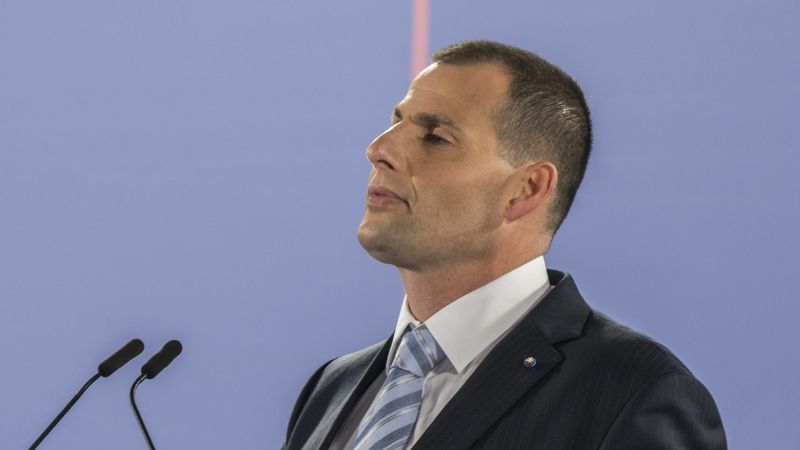Reading the report on the General Workers Union paper L-Orizzont about the European Commission’s annual rule of law report published on Wednesday, you would be forgiven for thinking that all is well in the land of bliss, but the report actually slammed Malta’s limited progress.
L-Orizzont reports “significant and notable” developments in the report, which, it says confirms the government’s” progress, ignoring criticism in the report.
The rule of law report criticises Malta for its lack of progress on several levels, including judicial reform, media freedom, access to information, whistleblower legislation, and concerns about corruption, including criticism of the Permanent Commission against Corruption’s lack of progress.
The report also highlights concerns about corruption in public procurement, which stakeholders in the sector, including the Chamber of Commerce, have repeatedly highlighted.
The passport sales scheme also continues to be a concern at the EU level, the report states.
Court delays
“Despite some improvements, the length of proceedings remains a concern,” the report states.
According to data in the 2024 EU Justice Scoreboard, in 2022, the disposition time for first-instance civil and commercial cases remained among the lengthiest in the EU, even though it decreased by 38 days compared to 2021.
Also, the backlog of pending cases has continued to deteriorate. The report notes that the number of resolved cases is less annually than the number of new cases.
Corruption
The report notes that experts and business executives perceive the level of corruption in the public sector as remaining relatively high.
“The 2024 Special Eurobarometer on Corruption shows that 95% of respondents consider corruption widespread in Malta (EU average 68%), and 56% of respondents feel personally affected by corruption in their daily lives.”
“As regards businesses, 71% of companies consider that corruption is widespread (EU average 65%), and 55% believe that corruption is a problem when doing business (EU average 36%).”
The report notes that the anti-corruption recommendations issued following the public inquiry into the assassination of journalist Daphne Caruana Galizia have not yet been implemented.
The report also highlights the delays in the implementation of the National Anti-Fraud and Corruption Strategy.
It notes that the effort to amend the criminal code and hire additional prosecutors in 2023 is positive.
The report also states the Permanent Commission Against Corruption has received increased human and financial resources, although the impact on its capacity to achieve tangible results remains to be seen.
Media Freedom
Concerns remain about the safety of journalists and access to information in the public interest.
The government’s failure to meet its commitment to publish a White Paper on media issues, as well as national measures to protect journalists against vexatious lawsuits (SLAPP) was noted in the report.
Other issues include the transparency of state advertising and public funding to media organisations, as well as the lack of progress in enhancing independent governance and editorial independence of public service media (PBS).
The Shift has been battling 40 legal challenges over the past two years for asking for information on government funding of media.
Recommendations
The report provides a set of recommendations to be implemented by the Maltese government:
- Pursue the draft reform endorsed by the Government to involve the judiciary in the procedure for the appointment of the Chief Justice.
- Further strengthen efforts to improve the efficiency of justice including by providing additional resources, particularly to reduce the length of proceedings.
- Continue efforts to address challenges related to the length of investigations of high-level corruption cases and step up efforts to establish a robust track record of final judgments.
- Adopt legislative and other safeguards to improve the working environment of journalists including on access to official documents, taking into account European standards on the protection of journalists and on access to official documents.
- Strengthen the rules and mechanisms to enhance the independent governance and editorial independence of public service media, taking into account European standards on public service media.
- Step up measures to establish a National Human Rights Institution, taking into account the UN Paris Principles.
- Introduce a formal framework for public participation in the legislative process.














I would like to comment on the prime ministers yesterday’s press conference.
Re St George’s Bay contamination. The pm should know that in malta there are 2 (two) St George’s bays. One is in the area of paceville. The other is part of birzebbugia. When he said that the bay was contaminated by a hotel AND THE HOTEL WAS NOT NAMED, simply because there are no hotels to mention. Could it be that the pm wanted to refer to balluta Bay? Does he know the geography of malta? Or was it that st George’s Bay in paceville was contaminated but the health department did not say anything? Mixed up?
Re electricity suspensions. I believe that the suspensions occurred later in the days. How come that the ship to shore is the culprit when most of the ships leave malta around 5 or 6 pm? Maybe in malta we are bottling electricity power and when the ships leave we do not have enough bottled electricity. On the other hand. Why encourage electric cars when we do not have enough supply?